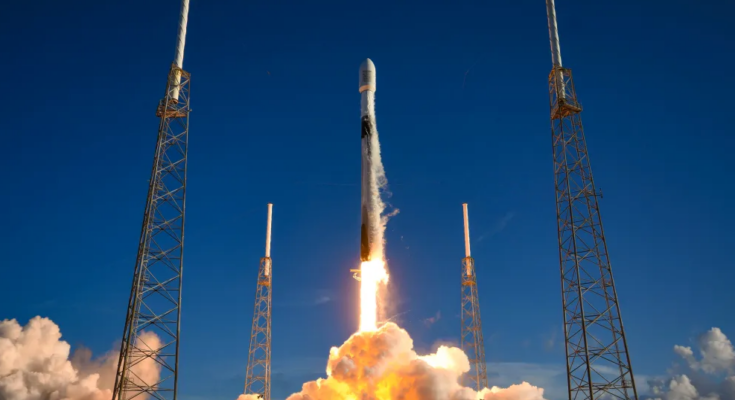Key Takeaways
- SpaceX has received the first task orders under the new program from the U.S. Space Force.
- As part of Phase 3 Lane 1, it is not expected that the launches will occur before 2026.
- Lane 1 prospects are projected to be worth $5.6 billion over the course of five years, with more bids to be awarded later this year.
SpaceX has contracts under the National Security Space Launch (NSSL) Phase 3 Lane 1 program for $733.5 million for eight missions.
The program aims to promote competition and innovation among launch operators, according to a Friday, October 18 announcement from the U.S. Space Force’s Space Systems Command (SSC).
The agreement will comprise seven Space Development Agency missions and one for the National Reconnaissance Office, all of which are expected to begin no earlier than 2026.
Last year, the third round of awards was split into two “lanes,” and the new SSC program includes SpaceX’s massive contract. While Lane 2 will include heavy-lift missions and orbits with greater range, Lane 1 is reserved for lower-risk missions, such as orbits near Earth.
United Launch Alliance, Jeff Bezos’ Blue Origin, and Elon Musk’s aerospace company were chosen to compete for the Lane 1 spot. Despite acknowledging the minimal number of bidders, Space Force stated that additional bidding windows would be held annually, with the next Lane 1 opening anticipated later this year.
The expected total value of Lane 1 contracts during the five years ending in 2029 is $5.6 billion, including the potential for a second five-year extension.
For the first time, SpaceX used enormous chopstick-like arms to safely return the rocket’s first-stage booster during its fifth Starship test flight last Sunday, October 13.
The executive officer of the Assured Access to Space program, Brig. Gen. Kristin Panzenhagen, stated in a press statement issued by the Space Force:
“By implementing launch services for the more risk-tolerant payloads more rapidly, the Phase 3 Lane 1 build enables us to deploy more capabilities in orbit faster to assist National Security.”
The Space Development Agency has begun employing SpaceX’s Falcon 9 rocket to launch a constellation of tiny satellites into low-Earth orbit (LEO) in order to improve military communications and intelligence capabilities.


